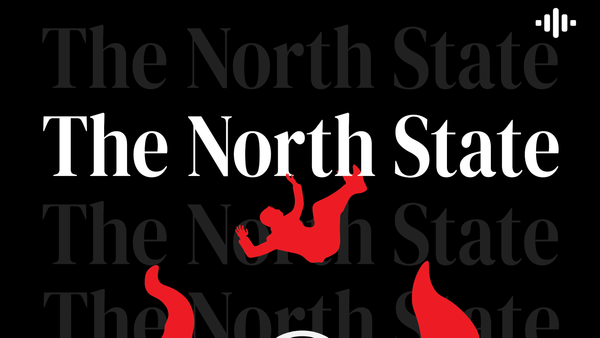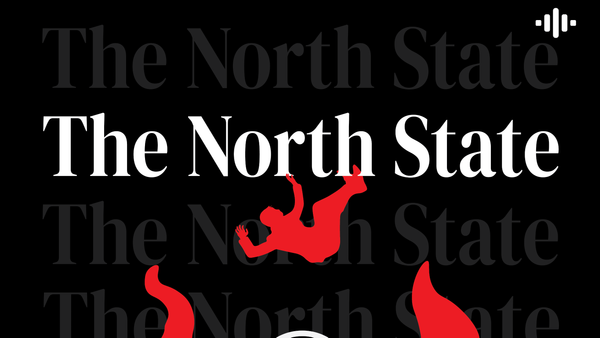Meta Announces it Will Pull News in Response to Bill C-18
The Online News Act has plenty of issues, but losing Zuckerberg's death machine isn't one of them

Meta, the parent company for Facebook and Instagram, is one of the most dangerous companies operating today. This is not hyperbole. Facebook amplified hate messages in Myanmar which directly contributed to perpetuating genocide. Meta’s role in the genocide was declared “proactive” Amnesty International. Frances Haugen, a whistle blower who worked at the company, alleges they facilitated organization for the January 6th insurrection. Their company harvests data and used its reach to help propel Donald Trump to the White house in 2016. Meta also conducted research that found using Instagram increases suicidal thoughts in teenagers by between six and 13 per cent. The company knew this and sat on the research.
To be blunt, social media giants like Meta are actively harmful in every way.
Then, when Canada announced Bill C-18, which would require tech companies to negotiate payment deals with news agencies, Meta and Google threw a world-class tantrum. Earlier this year, before the bill passed, Google tested restricting news to Canadians to flex its influence. While Google hasn’t announced further restrictions at this time, Meta declared that news content in Canada will be pulled from Facebook or Instagram before the law goes into effect in six months.
The criticisms of Bill C-18 are numerous and justified. Canadian news organizations already receive hundreds of millions of dollars in funds to keep their operations running. Bill C-18’s effect, however reasoned, is to take some financial burden off of the Canadian government and shift it to the private sector, who will receive disproportionate power to dictate news. The government’s role in this scenario is then shifted to a mediation role, which also has problems. Senator Paula Simons has criticized the bill on these grounds, asking why the CRTC is being given extra powers to interfere in press freedom. This is telling, as it directly addresses the role revenue and profits have in the creation of journalism in this country. Indeed, the news media with the most to gain from its passing are large corporations like PostMedia, TorStar, or the various wealthy investors with a vested financial interest in these companies.
These are all valid concerns, however a piece is being left out. News in this country is being used as a football between massive corporations and the Canadian government without addressing the core issues. Without support from either the government or the privatized sector, the odds are increasingly stacked against a news outlet’s survival. These concerns over Bill C-18 must also be framed in context. The country is steeped in a political climate where the marketization of news and its utility a profit-creation entity takes precedence over all else. The massive layoffs happening at Bell Media and the struggle of PostMedia to make money despite massive executive payouts are indicative of the real dynamics behind the journalism industry in this country.
Thus, Bill C-18 is another expression of the neoliberal goal to maximize markets in every industry, through government legislation. It’s not crafted to benefit Canadian news, it’s crafted to benefit large Canadian news corporations.
This brings us back to Meta’s decision to pull all news from Canada before Bill C-18 goes into effect. Two key things need to be addressed. First, there is a reason that two companies have such disproportionate control over internet traffic. Google and YouTube (owned by Google) make up the top two visited websites with a combined 118.1 billion visitors a year, with Facebook coming in third at 17.8 billion visitors. This is also due to a neoliberal approach to big tech companies, allowing their unwavering growth to occur without any substantial anti-trust action against them. Bill C-18 doesn’t have any content which restricts this dynamic. The near monopoly of big tech has created more problems for struggling news organizations and will continue to do so after the Bill’s passing.
Second, the effect this will have on independent media must be noted. Certainly the more recognizable names like CBC, Globe & Mail, Global News, CTV and National Post will be restricted. But what about outlets like The Maple, The Tyee, The Narwhal, Ricochet, CANADALAND or countless others? Since these are news entities, their legal compliance will be needed. But since Meta is restricting news content, they will lose a crucial point of their web traffic. With no plan by the federal government to supplant this, the true purpose of the Bill becomes even more clear.
If the goal was to support Canadian news, why is no alternative being discussed? That’s because that’s not the goal of Bill C-18. The solution to big tech’s exploitation of news is not to bend corporate power, it’s to replace it with a system that prioritizes news as a public service. However, this is not possible under current capitalist conditions, since it’s not a goal that financially benefits the Canadian government or large corporations controlled by hedge funds.
Canadians shouldn’t have to rely on tech giants run by craven, incompetent vultures for their news. But they also shouldn’t have to rely on other profit-obsessed leeches, or the state structure which supports them, for their news either. Though Meta’s move to restrict news on its sites is notable, and should be treated seriously, the government’s role in shifting blame can’t pass without analysis. Even so, there’s still a far more succinct, necessary and impactful message to be sent to Meta in response to this move:
Good, fuck off.





